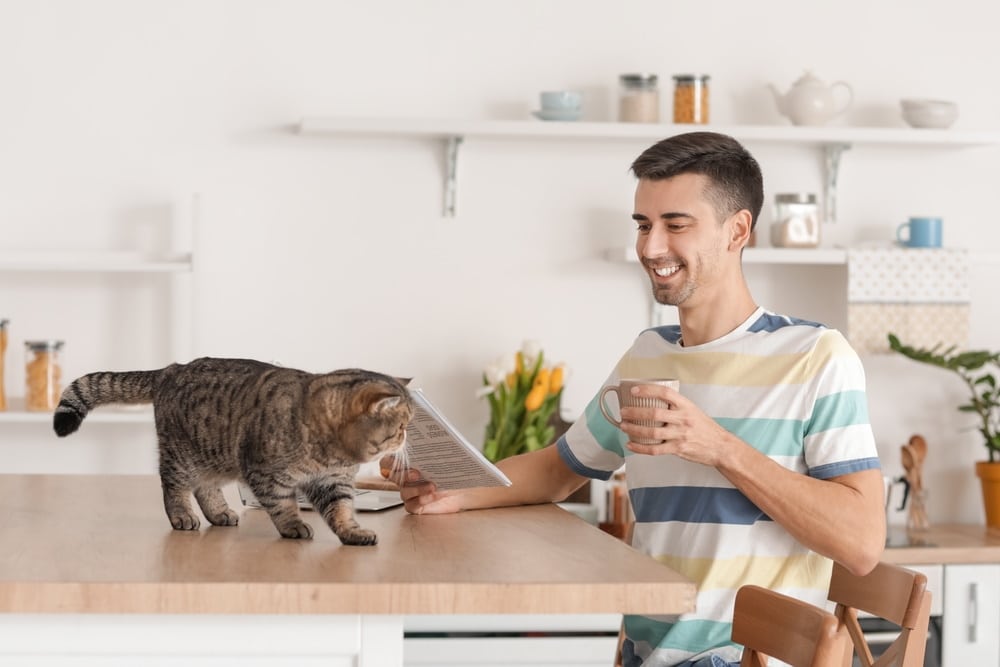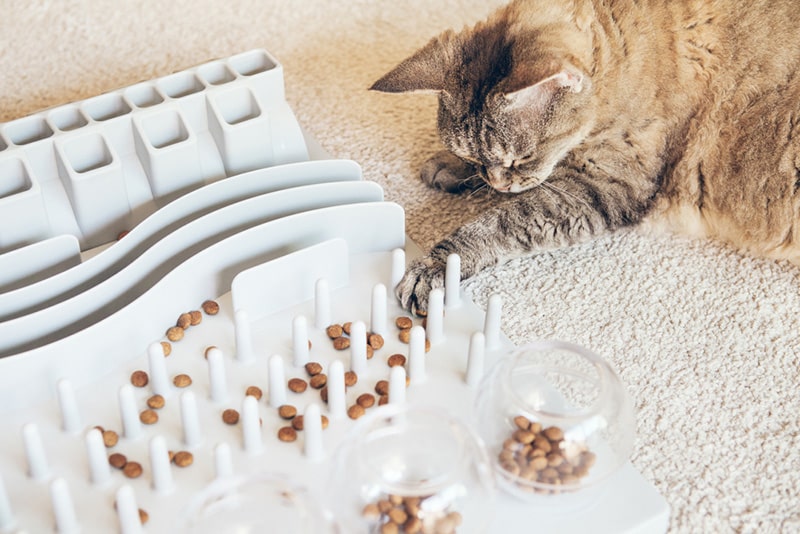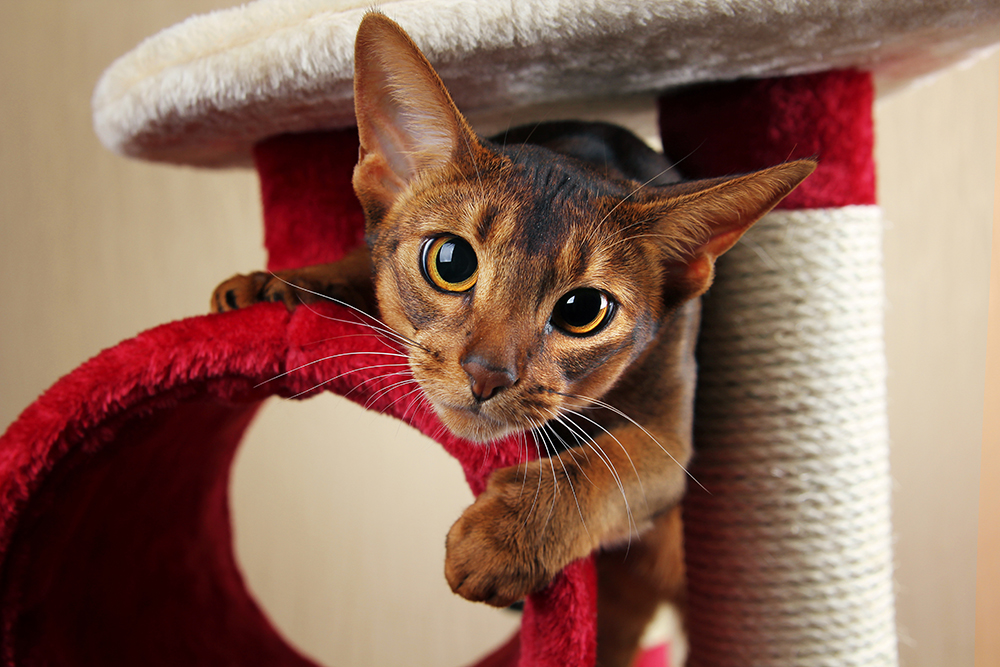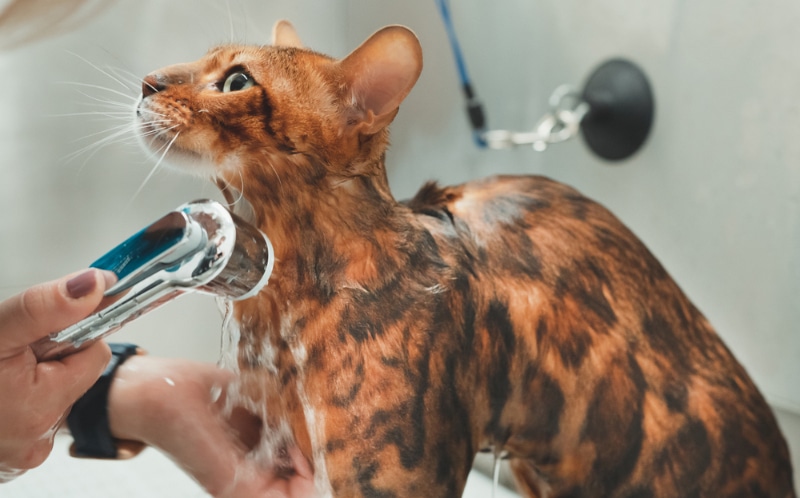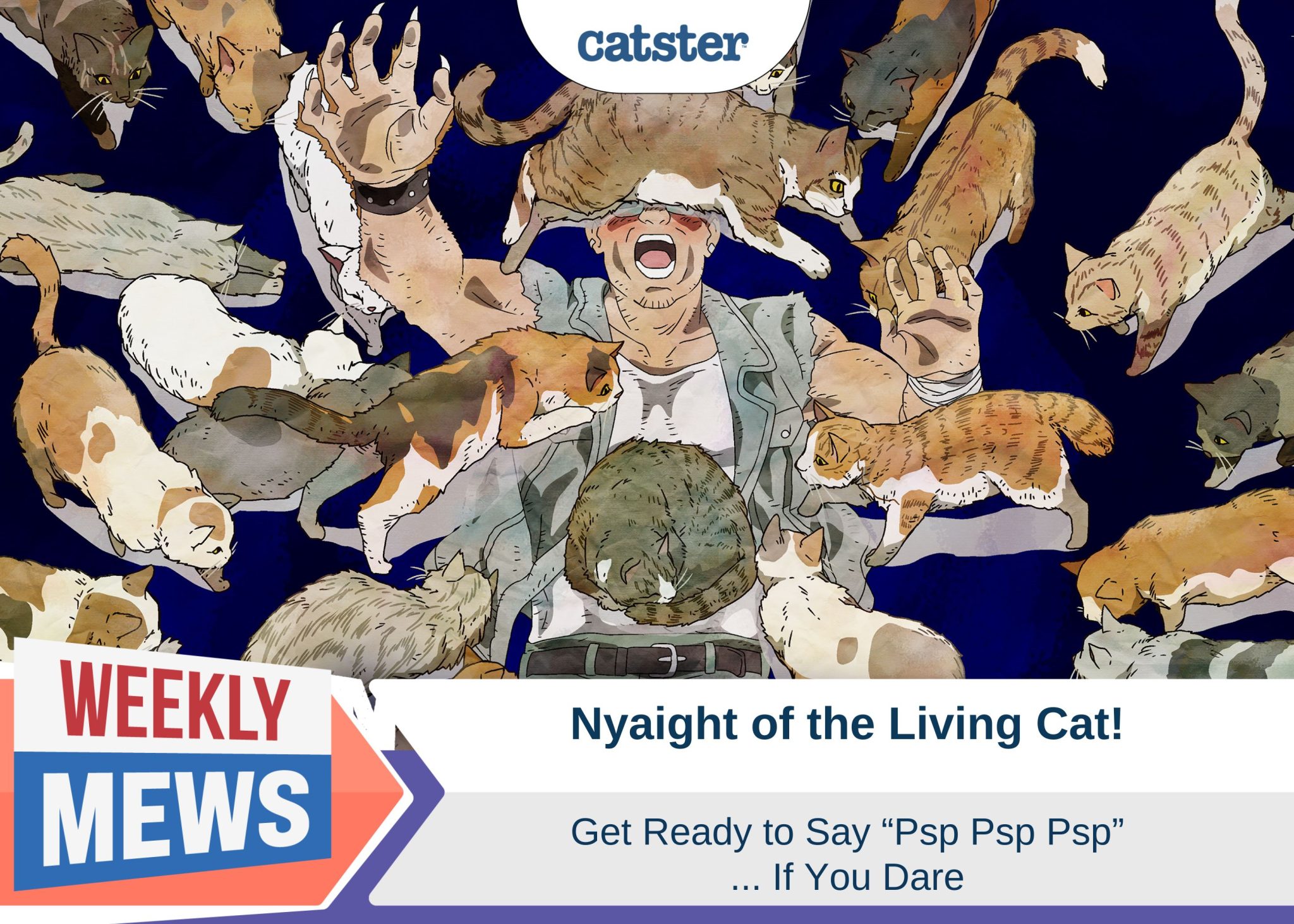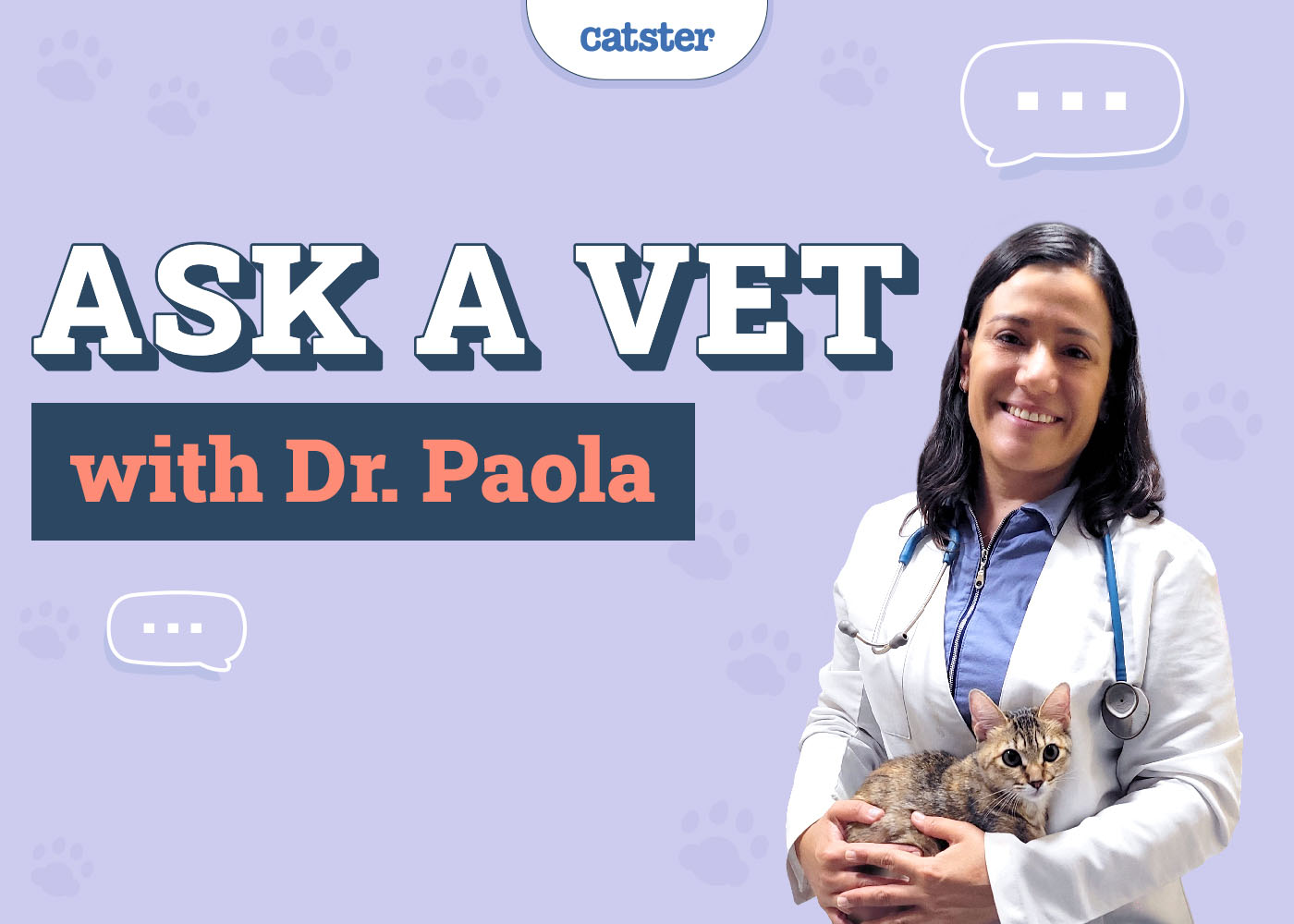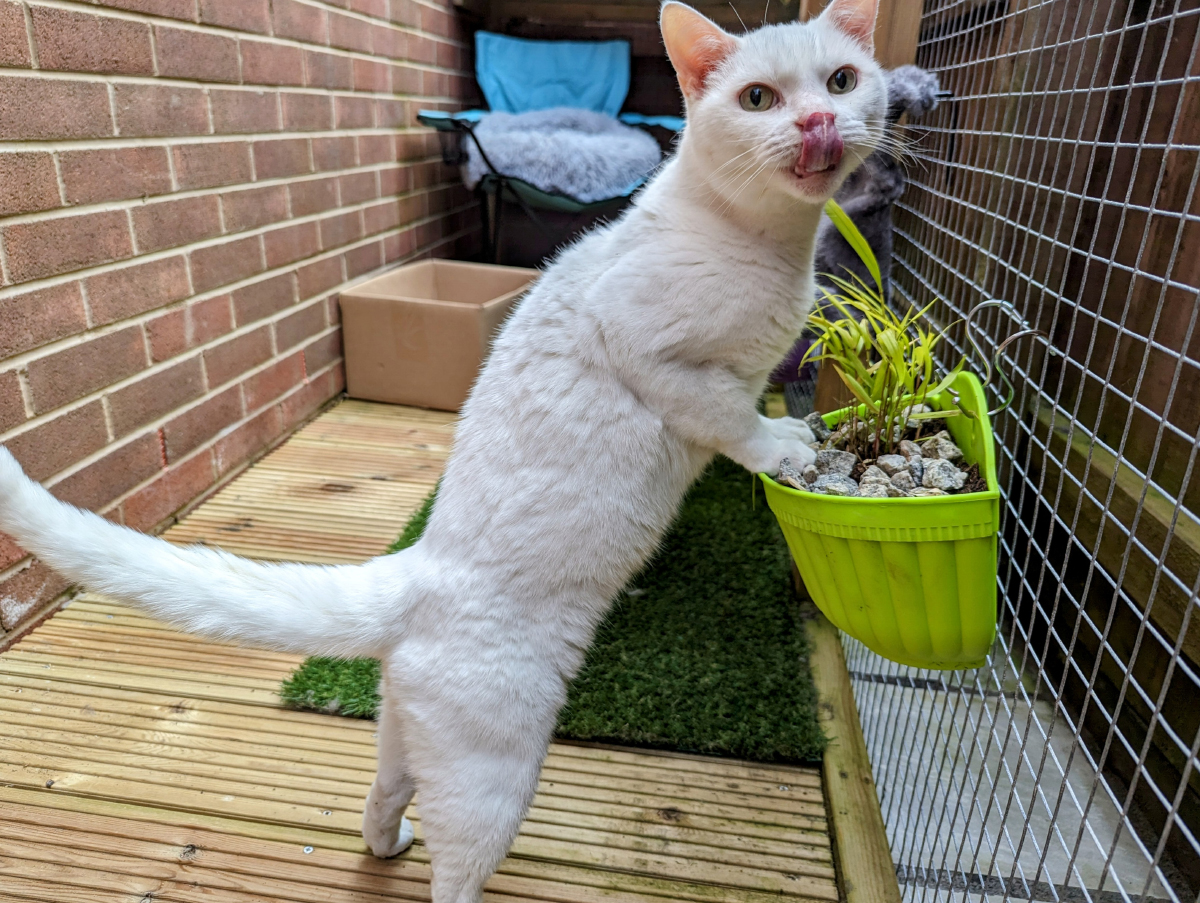Cat cafes are wonderful establishments that promote cat adoption and animal advocacy. They host and house adoptable cats and provide a safe environment for people to meet them.
Going to a cat café is a win-win for both you and the cats. Cats are known to be therapeutic and can help lower stress and anxiety levels 1. The cats also benefit by participating in socialization opportunities, and the reservation fees you pay go towards supporting their needs.
So, if you haven’t experienced a cat café before, it’s time to make a reservation with your local cat café. Here’s a list of some of the top cat cafes in the US that you must check out.

The 10 Top Cafes in the US
1. Denver Cat Company
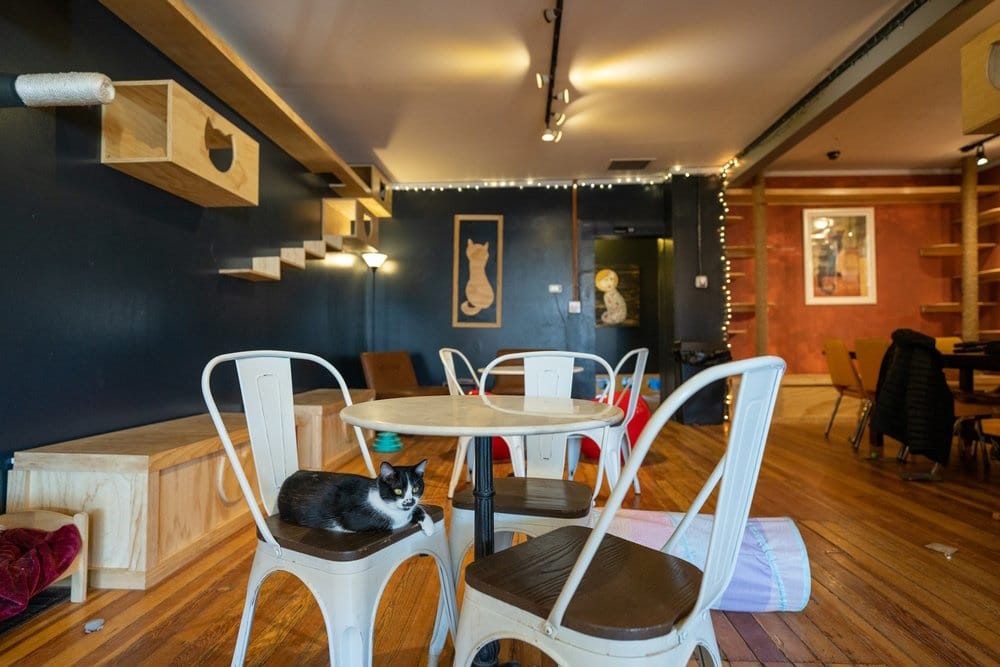
| 🗺️ Address: | 📍 3929 Tennyson St, Denver, CO |
| 🕐 Hours: | Monday–Thursday: 10:00 AM–7:00 PM; Friday–Sunday: 10:00 AM–8:00 PM |
The Denver Cat Company is one of the oldest cat cafes in the US. It’s a beautiful and warm space that both cats and humans will love. The interior design was thoughtfully planned with a cat expert to ensure the space was comfortable and engaging for cats. You’ll notice the excellent usage of vertical spaces and will probably draw inspiration for your own home after visiting this café.
The Denver Cat Company will host between 15 to 20 rescue cats at a time. While reservations aren’t required to visit, it’s recommended to book in advance to ensure you’ll be able to meet and spend time with the cats.
2. The Black Cat Market
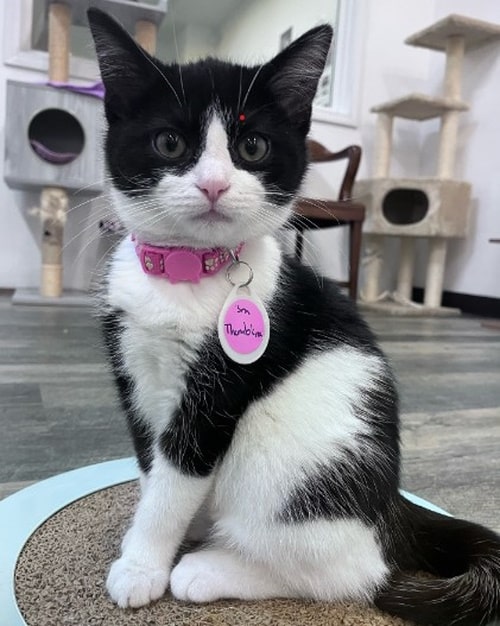
| 🗺️ Address: | 📍 5135 Penn Ave, Pittsburgh, PA |
| 🕐 Hours: | Monday–Friday: 11:00 AM–6:00 PM; Saturday–Sunday: 10:00 AM–4:00 PM, 5:00 PM–7:00 PM |
The Black Cat Market is a paradise for both cats and cat lovers. It’s a café, boutique, and cat adoption center all rolled into one. The atmosphere is very cozy, and there is a small café area where you can get your coffee fixed. You can reserve time in the Cat Room, which is where you can play and spend time with the adoptable cats.
Along with coordinating cat adoptions, Black Cat Market hosts various community events like painting classes. You can also rent out the space for your own events or parties.
3. The Brooklyn Cat Café
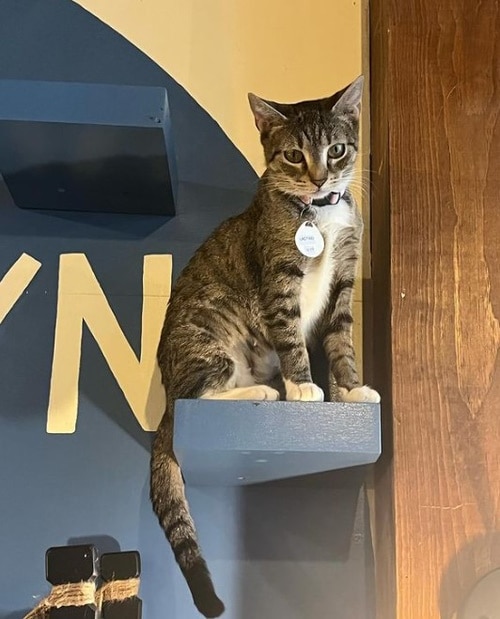
| 🗺️ Address: | 📍 76 Montague St, Brooklyn, NY |
| 🕐 Hours: | Friday–Monday: 12:00 PM–7:00 PM |
Brooklyn Cat Café is a community cat adoption space run by the Brooklyn Bridge Animal Welfare Coalition (BBAWC). It’s a popular neighborhood gem that averages around 35,000 visitors annually. You can reserve a visit to Brooklyn Cat Café and can either book a general visit or a private visit with a single cat that’s available for adoption.
The café space also hosts educational classes on various topics, including animal welfare. You can also register for yoga classes and other events that take place throughout the week.
4. Fat Cat Café
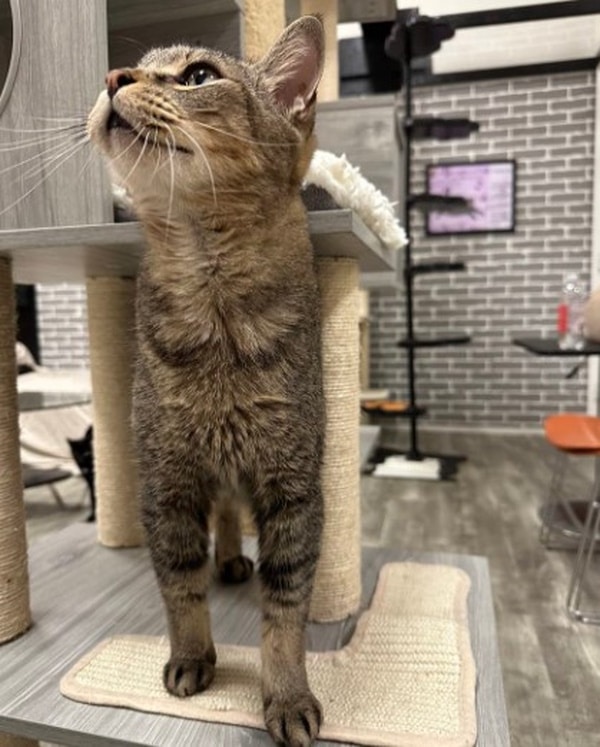
| 🗺️ Address: | 📍 2901 E Park Ave, Tallahassee, FL |
| 🕐 Hours: | Sunday–Saturday: 12:00 PM–6:00 PM |
Fat Cat Café is the first cat café to open in Tallahassee. All the rescue cats in their café come from various local animal rescue agencies. The café offers a small selection of beverages, and it also has a boutique where you can purchase a variety of cat-themed items. Walk-ins are welcomed during normal business hours, but it’s best to book a visit online.
This organization also has a bookshop that’s located about 15 minutes away from the café. The bookshop also hosts rescue cats, and it has books and gifts that you can purchase to support the organization.
5. Cat Town
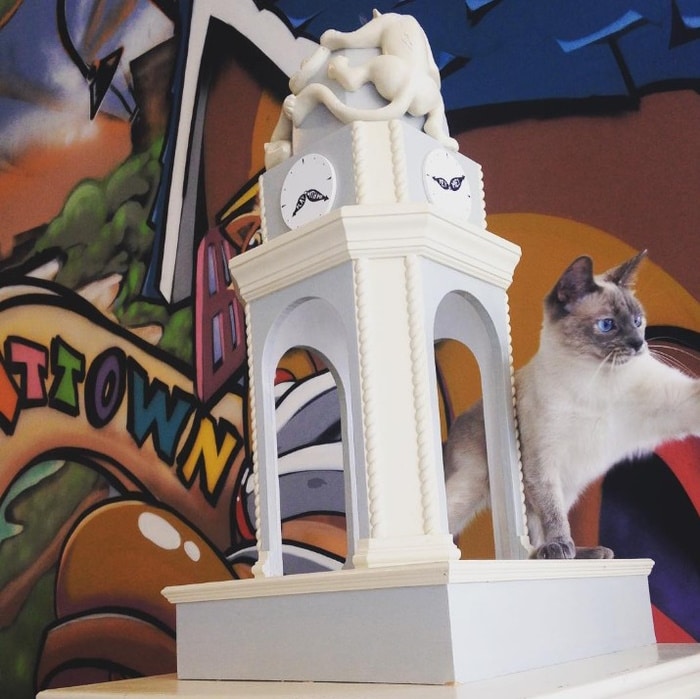
| 🗺️ Address: | 📍 2869 Broadway, Oakland, CA |
| 🕐 Hours: | Friday–Sunday: 10:00 AM–5:00 PM |
Cat Town is another fun space to visit and spend time with rescue cats. It’s a cage-free adoption center that houses between 25–35 cats that are ready for adoption. Regular visits have a fee, but adopters can schedule a free visit after filling out an adoption form.
You can also purchase coffee and vegan treats at RAWR Coffee Bar, which is attached to Cat Town. The space also has cat toys and apparel that you can purchase. Just keep in mind that it doesn’t have the same hours of operation as Cat Town, so it may be closed during your visit.
6. The Catcade
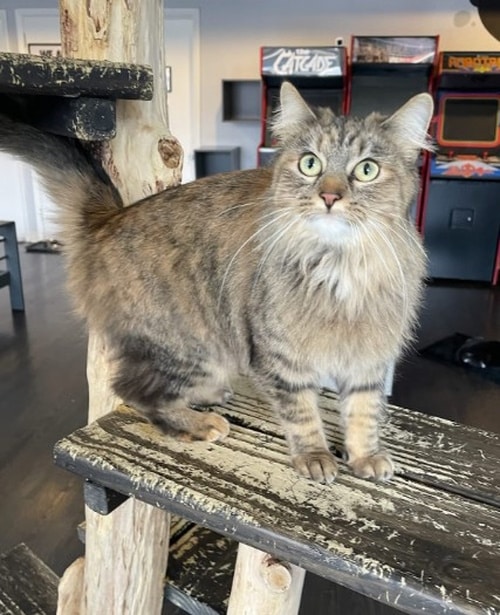
| 🗺️ Address: | 📍 1235 W Belmont Ave, Chicago, IL |
| 🕐 Hours: | Monday: 12:00 PM–6:00 PM; Thursday–Saturday: 12:00 PM–8:00 PM; Sunday: 11:00 AM–6:00 PM |
The Catcade steps away from the traditional model of a cat café and is more of a fun hangout space and lounge with cats. It’s a 600-sq. ft. space where you can just hang out with cats, get some work done, or play vintage arcade games. The Catcade also coordinates adoptions and hosts community events throughout the year.
The Catcade has volunteer opportunities and a cat foster program. You can also reserve the space for private events.
7. Alley Cat Café
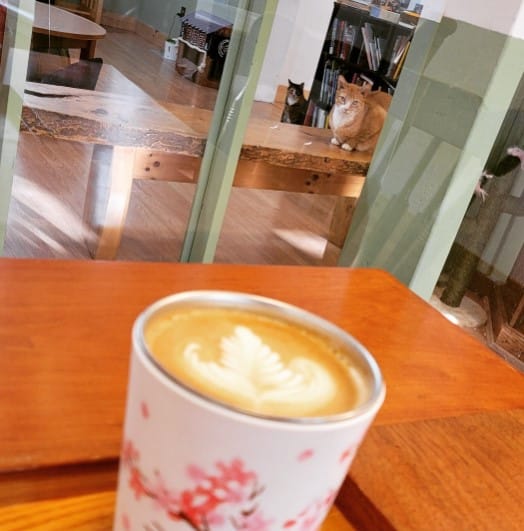
| 🗺️ Address: | 📍 112 N Cayuga St, Ithaca, NY |
| 🕐 Hours: | Monday–Saturday: 9:00 AM–6:00 PM; Sunday: 10:00 AM–5:00 PM |
Alley Cat Café is a warm and cozy café that offers a full food and drink menu. All their dishes are vegetarian, and you can find several tasty vegan options. After enjoying a tasty meal and warm coffee or tea beverage, you can visit the cats in the separate cat room. Keep in mind that all cat visits require a reservation.
You can also sign up for yoga classes at Alley Cat Café. These classes are led by a trained yoga instructor and are held in the cat room.
8. Koneko Cat Café
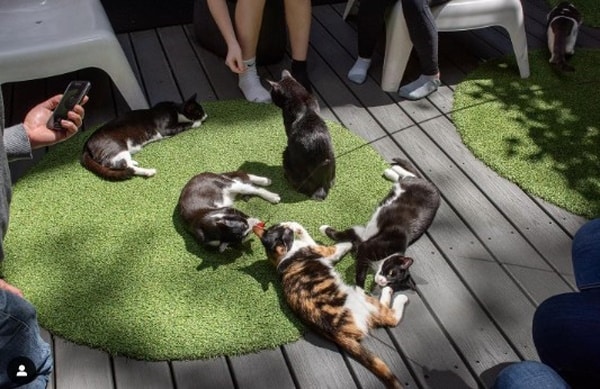
| 🗺️ Address: | 📍 26 Clinton St, New York, NY |
| 🕐 Hours: | Wednesday–Sunday: 9:00 AM–9:00 PM |
On the outside, Koneko looks like a posh café with delicious café food and drinks. It has many Japanese-inspired snacks and desserts and house-made pastries on its menu. It offers coffee and tea drinks and has an alcoholic beverage menu that includes beer, wine, and sake.
Along with having an impressive café menu, Koneko has a fun cat space that houses up to 20 rescue cats. You can reserve time to hang out with these cats or host private parties and events. Koneko also offers children’s birthday party packages, which include an hour and a half of cat playtime.
9. The Casual Cat Café
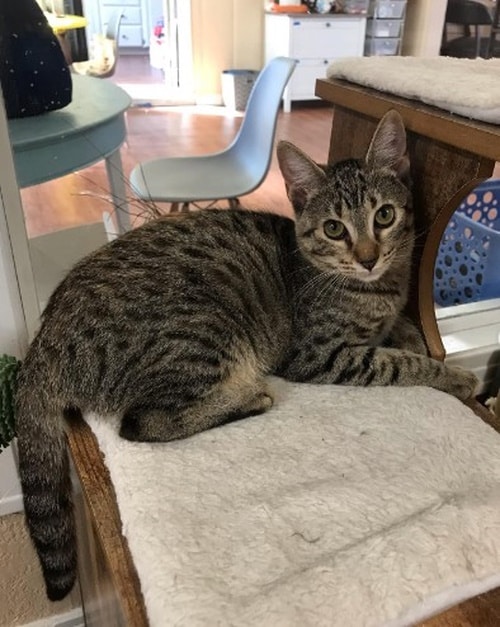
| 🗺️ Address: | 📍 7264 Glenview Dr, Richland Hills, TX |
| 🕐 Hours: | Sunday–Saturday: 10:00 AM–6:00 PM |
The Casual Cat Café is a comforting safe haven for rescue cats. It has a café and boutique area that sells a collection of items made by local artisans. Due to health regulations, the café serves a limited selection of pre-packaged snacks and drinks. However, you can order DoorDash deliveries or bring your own food.
This café has a separate cat lounge, which houses between 12 to 15 cats at a time. You can arrive as a walk-in, but reservations are preferred. If you really enjoy spending time with the cats here, you can sign up for a monthly membership pass. Members have unlimited entries to the cat lounge during normal business hours.
10. The Tree House Cat Café
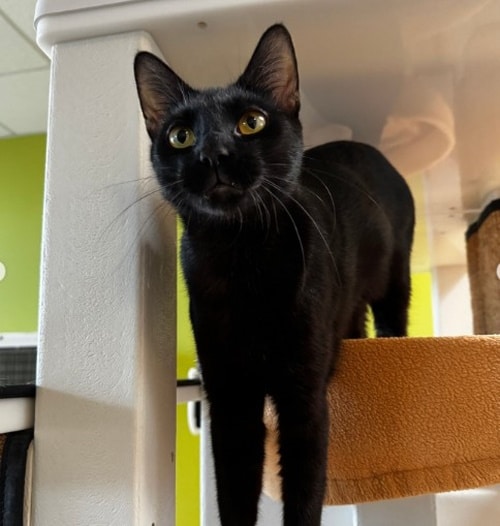
| 🗺️ Address: | 📍 7225 N Western Ave, Chicago, IL |
| 🕐 Hours: | Thursday–Sunday: 10:00 AM–1:00 PM; 1:30 PM–6:00 PM |
The Tree House Cat Café is attached to the Tree House Humane Society. It has a café that’s open to the public. The café menu includes coffee, tea, and espresso drinks. It also has an assortment of snacks and pastries.
Reservations are required to spend time with the cats in the cat lounge. Each cat visit includes 30 minutes with the cats and one free drink. The cat lounge is designed like a comfortable living room and provides a relaxing and enjoyable experience with friendly cats.

Conclusion
Cat lovers must visit a cat café at least once in their lifetime. There are so many fun and cozy cat cafes that provide an enjoyable experience for both cats and humans. Along with spending time with some cute cats, your visit will support a good cause and promote cat adoptions. So, make sure to put a cat café visit down on your calendar and get ready to hang out and play with some adorable cats.
Featured Imagr Credit: Pixel-Shot, Shutterstock

